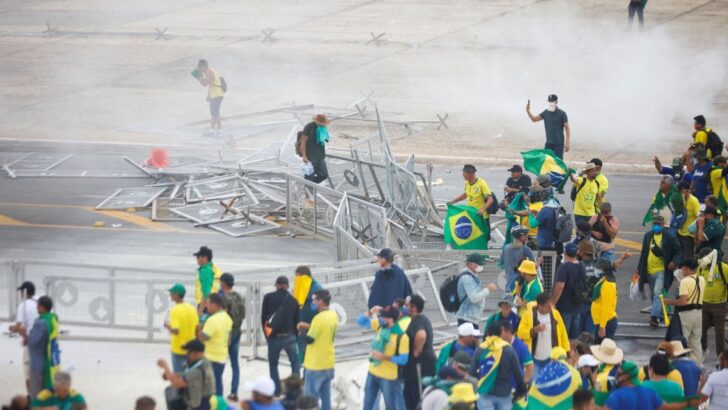The attacks on the three branches of government in Brasilia immediately recall the events at the U.S. Capitol in Washington two years ago. The expressions of hate and global conspiracy theories surrounding both these attacks could also be linked to the groups who attempted to assassinate Cristina Fernández de Kirchner. Although this region has seen several decades of democracy, in some cases interrupted by coups d’état or attempted coups – both the old and new versions – these attacks show that our democracies are still fragile. In recent years, the threat stems from a global far-right movement that puts these democracies at risk, with local particularities according to latitude, but also with common narratives and strategies. They aim to harness the rights and liberties won through long years of struggle to abolish political coexistence.
What happened in the center of the Brazilian capital on Sunday, January 8 was part of an announced process. The sectors that carried it out made sure to disseminate each step from the moment they decided to mobilize after Jair Bolsonaro’s electoral defeat. They organized encampments, rejected the election results in which Lula da Silva was elected president, and called on the army to assume power. The rhetoric of sympathizers with the former president became louder and louder, replicated on social media on the days leading up to the inauguration of Lula, leader of the PT (Workers’ Party).
Over the course of those days, the authorities discussed what to do about these groups of protesters invoking their rights to protest and freedom of expression. The demonstrators claimed that even though they were challenging democracy itself, they should still be able to exercise these rights. It is difficult to analyze whether these protesters can be compared to those from socially disadvantaged sectors who protest in defense of their rights. The advance of these new rightwing groups bares reflection on this issue. What happens when democracies provide the tools and possibilities for some groups to seek to limit or do away with those same democracies? In Brazil, the recent events quickly shifted this debate toward new consensus regarding limits on the right to protest and the criminal categories applicable to the different acts. It is clear that actions of this type cannot go unpunished. But responding from the criminal system is, as always, insufficient when it comes to deep, structural problems.
This situation also calls for a discussion about what role the security forces should take in order for them to defend the institutions of democracy against aggression of this kind. The role they played in these episodes only confirms that these forces need to be reformed and adjusted to the task of safeguarding democracy and human rights. And there must be progress on this critical point so as not to leave democracy undefended against those who seek its implosion.
Attacks on democracy are attacks on societies as a whole, on the institutions that channel conflicts, tensions, the search for a future. Groups like these operate on the fragility of these democracies. And when there is a lack of response and people’s expectations dashed, far-right rhetoric takes root in the frustration of different sectors of society, captivating them with proposals of radical rupture. States must make use of every tool available to them to prevent and investigate attacks like the one last Sunday in Brazil, respecting human rights guarantees. But fundamentally, they must urgently prioritize the construction of a substantive democracy that reduces inequalities and improves living conditions for the majority of the population.

